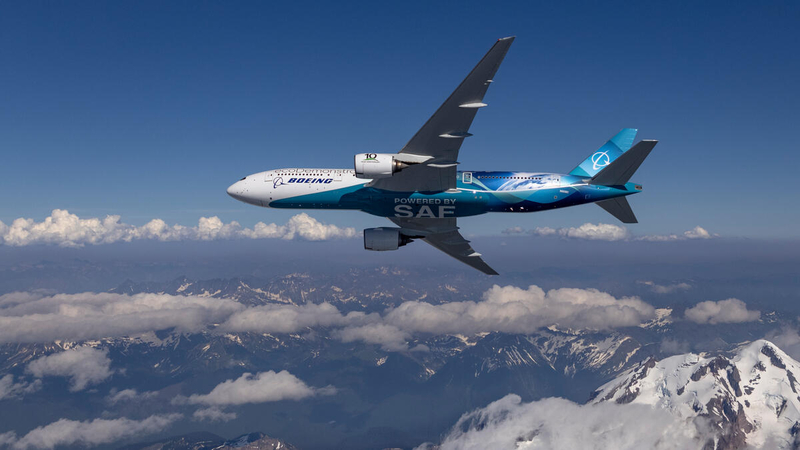- Domestic sustainable aviation fuel (SAF) production in New Zealand could generate NZD1.3 billion and create 5,700 jobs by 2050.
WELLINGTON, July 21, 2025 – Domestic production of sustainable aviation fuel (SAF) to meet 30% of New Zealand's jet fuel needs by 2050 could generate NZD 1.3 billion in Gross Value Added (GVA) and create 5,700 jobs, while also strengthening fuel security, according to a Cyan Ventures study supported by Boeing [NYSE:BA].
“The opportunity to secure New Zealand’s long-term aviation fuel supply, boost economic growth and help meet ambitious climate goals through SAF is compelling,” said Dr. Kimberly Camrass, Boeing acting Regional Sustainability lead, Asia Pacific. “Overall there’s a clear case to act now, and a clear set of potential steps.”
The report outlines the benefits of defining acceptable feedstocks and certification standards, linking SAF to the national Emissions Trading Scheme, establishing a policy framework to support investment into SAF, and create a strong demand and investment signal at a leadership level.
It also found that New Zealand can potentially safeguard NZD 4.1 billion in tourism revenue and almost NZD 200 million in trade revenue over the period to 2050, as other countries accelerate decarbonizing aviation and SAF becomes a business and passenger expectation.
"Additionally, New Zealand's reliance on imported jet fuel highlights the need for a domestic SAF supply. This is critical for reducing emissions as aviation could rise to represent 22% of the country’s gross emissions by 2050 if no action is taken, but also for ensuring sovereign security,” said Camrass.
SAF is produced from renewable sources – such as agricultural and forestry waste, animal fats, vegetable oils and municipal solid waste – and significantly reduces carbon emissions over the fuel’s life cycle.
While SAF currently costs more than conventional jet fuel, the study states that adopting 5% use of SAF by 2030 would align with other countries in the Asia Pacific region and add less than the cost of a cup of coffee on one-way domestic flights – a cost outweighed by attracting 1.2% more travelers.
More than 190 countries, including New Zealand, have agreed via the International Civil Aviation Organisation to reduce carbon intensity of aviation fuel by 5% by 2030, and approximately 45 countries are already implementing or committed to SAF policies, including all of New Zealand’s top ten trading partners.
The New Zealand SAF study, which is part of Boeing’s commitment to the aviation industry’s goal to achieve net zero emissions by 2050, was unveiled at a New Zealand industry Policy Roundtable on Aviation Decarbonisation held in Wellington today.
